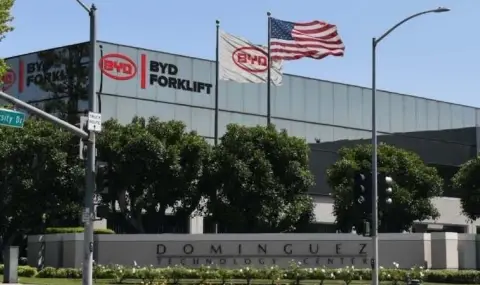The trade war between the West and China has revealed an unpleasant fact: Beijing feeds its own car companies with huge subsidies, thanks to which they can sell cars in Europe and USA at very low prices. So it was decided to impose heavy duties on them to somehow bring the prices in line with local brands and be competitive. It is now clear that this action did not work.
No desired effect
The percentage of tax imposed on Chinese electric vehicles varies from country to country. The highest tariffs reach 100 percent and have been applied by the US and Canada. In the EU, they were more lenient: there the duties range from 17.4% (for BYD cars) to 38.1% (for the SAIC company).
However, Nikkei writes that even with the new 100% tariff, BYD will still have the cheapest electric car in the US. According to a new report, BYD's cheapest offering will eclipse all US automakers under $25,000.
Why BYD succeeded
After ceasing production of internal combustion engine vehicles in March 2022, BYD is at the forefront of the industry's transition to electric vehicles. The company has been building its supply chain for much longer than any other EV company today. It began manufacturing lithium-ion batteries in 1996, supplying batteries for Motorola and Nokia smartphones.
These early investments in battery manufacturing helped BYD become the industry giant it is today. Since launching its revolutionary Blade EV battery in 2020, the company has continued to introduce even more efficient and low-cost technologies to drive down prices. The technology, for example, of Tesla is younger, has not yet had time to go through the process of cheapening, and therefore the company's cars are much more expensive.
BYD's cheapest electric car, the Seagull EV, costs less than $10,000 (69,800 yuan) in China. Thus, in China's auto market, the company's affordable electric and hybrid models are displacing gasoline-powered vehicles, especially from foreign automakers.
Advantages of Chinese companies
Chinese automakers like BYD have an advantage with well-established supply chains that allow prices to be cut. Consumers in this country show a much higher demand for electric cars, which allows the development of production and mass production. In contrast, in the US, consumers still stick to gasoline cars.
In July, electric vehicles accounted for more than 50% of China's passenger car sales. And in the US, according to the latest data from S&P Global Mobility, electric vehicles accounted for only 8.5% of the passenger car market during the same period.
Chinese companies, including BYD and CATL, also dominate the global battery market. According to SNE Research, CATL (35.9%) and BYD (16.5%) led global electric vehicle battery sales in the second quarter based on shipments. In the first eight months of 2024, CATL accounted for 37.6% of the global EV battery market, while BYD was second with 16.1%.
Cheaper than others
All of this, along with Chinese subsidies, allows BYD to offer the cheapest electric car in the US, even with the new 100 percent tariffs, AutoForecast Solutions CEO Joe McCabe said in an interview with Nikkei.
The tariffs will go into effect on September 27 and are designed to “protect American manufacturers from China’s unfair trade practices,” according to a White House press release.
McCabe said BYD's cheapest electric car, the Seagull EV, will cost $12,000 in the US. At a 100% tariff rate, that amount comes to $24,000 - still far cheaper than anything offered by the US auto industry.
Tesla, which currently holds the lead (48% share in July) of the US electric car market, has not yet crossed the $30,000 mark. We are not talking about other manufacturers at all, because their products are mostly considered premium and are many times more expensive.
